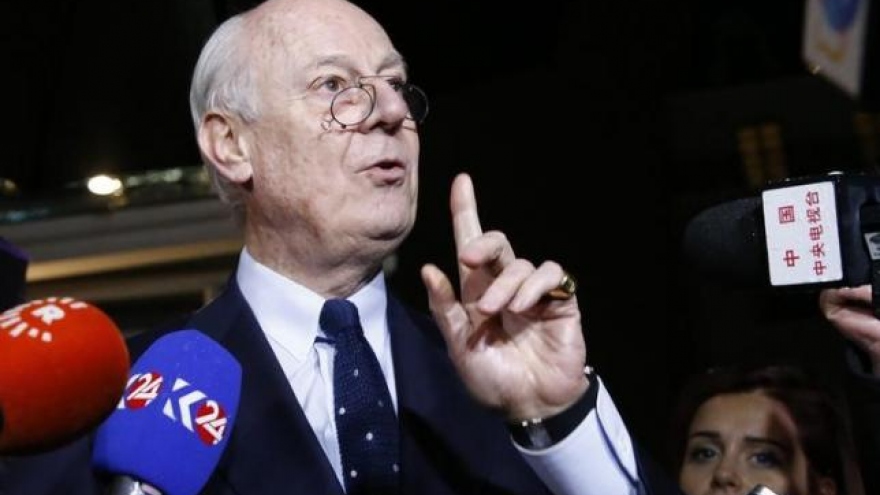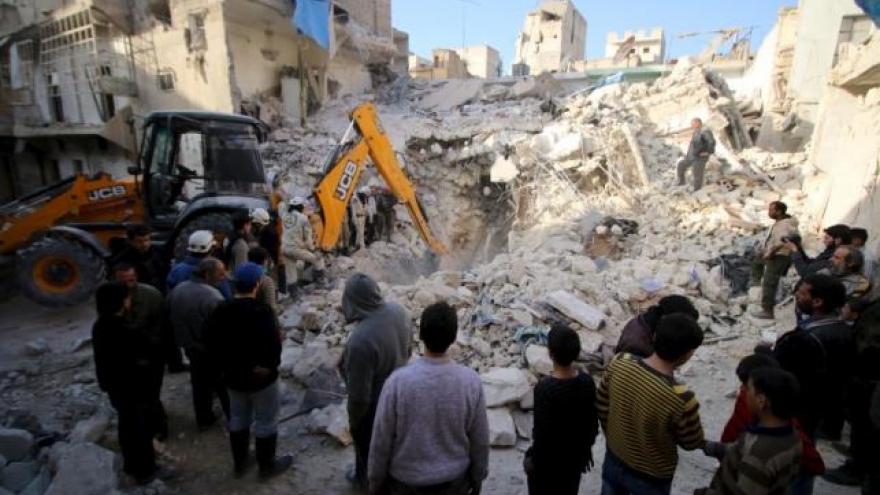Syrian rebels see flaws in US-Russian truce plan
The United States and Russia announced plans for a "cessation of hostilities" in Syria that would take effect on February 27 but exclude groups such as Islamic State and al Qaeda's Nusra Front, a loophole Syrian rebels immediately highlighted as a problem.
February 22's agreement, described by a UN spokesman as "a first step towards a more durable ceasefire," is the fruit of intensive diplomacy between Washington and Moscow, which back opposing sides in the 5-year-old civil war that has killed more than 250,000 people.
Presidents Barack Obama and Vladimir Putin discussed the accord by phone, and the Kremlin leader said it could "radically transform the crisis situation in Syria." The White House said it could help advance talks on bringing about political change in Syria.
 |
| Blood covers the hands of an injured boy lying in a field hospital after what activists said were air strikes by forces loyal to Syria's President Bashar al-Assad in the Douma neighborhood of Damascus February 6, 2015. |
The plan allows the Syrian army and allied forces, as well as Syrian opposition fighters, to respond with "proportionate use of force" in self-defense. It leaves a significant loophole by allowing further attacks, including air strikes, against Islamic State, Nusra and other militant groups.
Bashar al-Zoubi, head of the political office of the Yarmouk Army, part of the rebel Free Syrian Army, said that would provide cover for Syrian President Bashar al-Assad and his Russian allies to keep attacking opposition-held territory where rebel and militant factions are tightly packed.
"Russia and the regime will target the areas of the revolutionaries on the pretext of the Nusra Front's presence, and you know how mixed those areas are, and if this happens, the truce will collapse," he said.



